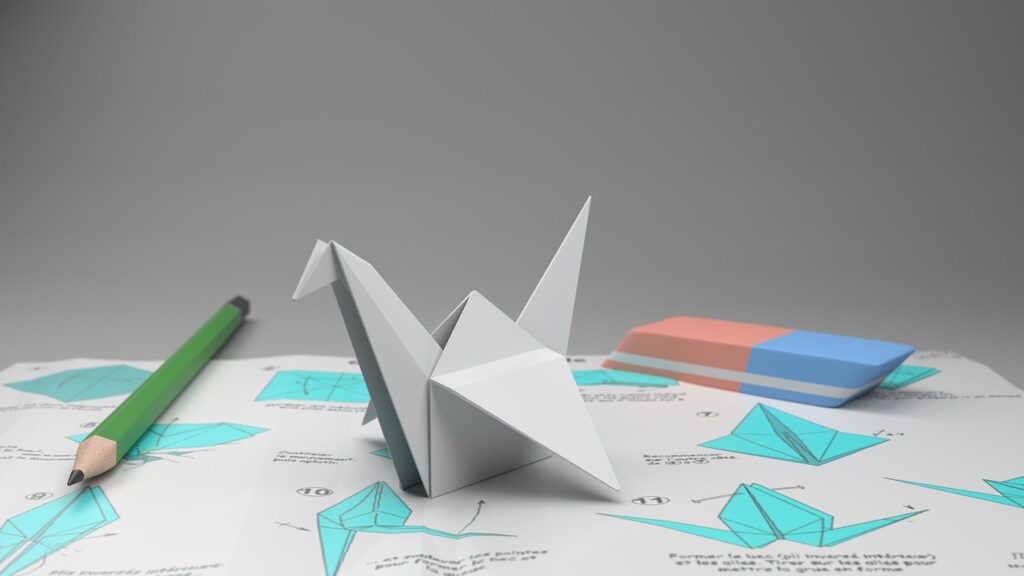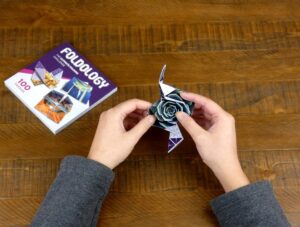Key Takeaways
- Origami offers therapeutic benefits for individuals with autism, addressing core challenges like communication and sensory processing.
- The structured, repetitive nature of origami provides calming effects and improves fine motor skills, creativity, and cognitive abilities.
- Research shows origami can significantly improve focus and self-regulation in autistic children.
- Origami is being incorporated into various therapeutic and educational settings to support autistic individuals’ development.
A few years ago, I came across a touching story about Yazen Sami, a young boy with autism from Gaza who discovered a profound talent for origami. As the current conflict rages in Gaza, I often think of Yazen and the joy he found in origami, and sincerely hope he and his family remain safe. Stories like Yazen’s reveal the humanity within even the most painful conflicts.
As someone with a lifelong passion for origami myself, Yazen’s story resonated deeply. Though our circumstances differ, I connect with how origami can captivate certain minds. I see the therapeutic benefits of this ancient art form for individuals on the spectrum.
Table of Contents
Core Challenges of Autism
Autism is a complex condition that involves difficulties with communication, social skills, sensory processing, and often repetitive behaviors. Some of the main challenges autistic individuals face include:
- Verbal and nonverbal communication problems like limited speech or struggles with back-and-forth conversation
- Enhanced or reduced sensitivity to stimuli like sounds, textures, or tastes
- Need for rigid routines and difficulty with transitions or changes
- Difficulty making eye contact, reading emotional cues, making friends
- Intense focus on narrow interests or repetitive motions like hand flapping
These issues make many aspects of life profoundly challenging. Supporting autistic children requires accommodating their needs.
Origami as Therapy for Autism
Origami, the meditative practice of paper folding, directly targets many of autism’s core symptomatic behaviors. The structured, repetitive process provides benefits across cognitive, motor, emotional, and social domains.
Calming Effects
The centering ritual of origami soothes anxious minds prone to emotional storms or meltdowns. Methodically following folding diagrams provides a calming, focused activity for autistic children to channel nervous energy more constructively.
Improved Fine Motor Skills
The precision required to perform origami folds and creases helps develop hand-eye coordination, dexterity, grip strength, and overall fine motor control. This boosts essential skills in autistic kids.
Creative Outlet
Folding origami animals, characters, and objects enables autistic children to engage their imagination and creativity in a self-directed, low-pressure way. This artistic outlet facilitates self-expression and emotional processing.
Cognitive Benefits
Origami’s step-by-step approach matches the patterned thinking common in autism. Progressing through origami instructions reinforces vital cognitive skills like following directions, patience, concentration, attention to detail, and sequential processing.
Educational Tool
Origami creations can impart key academic concepts like shapes, spatial relationships, geometry, fractions, symmetry, sequences, and more. This interactive learning suits the strengths of autistic cognition.

Evidence for Origami’s Benefits
Robust research affirms origami’s measurable benefits for autistic children. A seminal study published in the International Journal of Education, Psychology and Counseling divided autistic students into two groups. One group completed 20 sessions of origami instruction using a tailored curriculum. The control group received only their typical special education.
Before and after the origami lessons, researchers assessed both groups using an observational scale for symptoms like inattention and impulsivity. The results showed the origami group had far greater improvements in focus and self-regulation. This demonstrates origami’s efficacy as a targeted intervention promoting cognitive growth in autism.
Applications in Therapy and Teaching
Many clinicians now incorporate origami into therapy for autistic children. For example:
- Occupational therapists use origami to improve fine motor skills.
- Speech therapists have children describe their paper creations to build communication skills.
- Special education teachers use origami to teach academic concepts in a multisensory way.
- Counselors employ group origami to practice social interaction.
- Parents can bond with autistic children through origami’s relaxing, structured fun.
Origami allows therapists and teachers to address core autism deficits through an engaging activity perfectly suited to autistic learning preferences.
My Personal Experience
I’ve loved origami since childhood, but it has become an invaluable coping mechanism for me as an adult. The methodical ritual brings a sense of comfort and control which helps me find sense in a frequently chaotic world.
Progressing step-by-step through origami instructions fulfills my desire for order and precision. Immersing myself in the folding process helps manage anxiety. And completing origami designs provides a boost of personal accomplishment.
Origami remains a challenging special interest and relaxing hobby. More importantly, it has given me vital tools to navigate life’s complexities and find moments of calm in a busy world.
Conclusion
The research clearly shows origami has untapped therapeutic potential for autistic children. This humble craft uses its mesmerizing magic to address autism’s core symptoms. Origami offers autistic minds a place of calm focus and fulfilling productivity.
I hope children like Yazen can keep finding both joy and progress through origami. And I encourage parents, teachers, and therapists to embrace origami as a tool to support autistic children. Guide them as they fold paper and unlock their capabilities. Origami can become an invaluable aid on their developmental journey, if given the chance.




